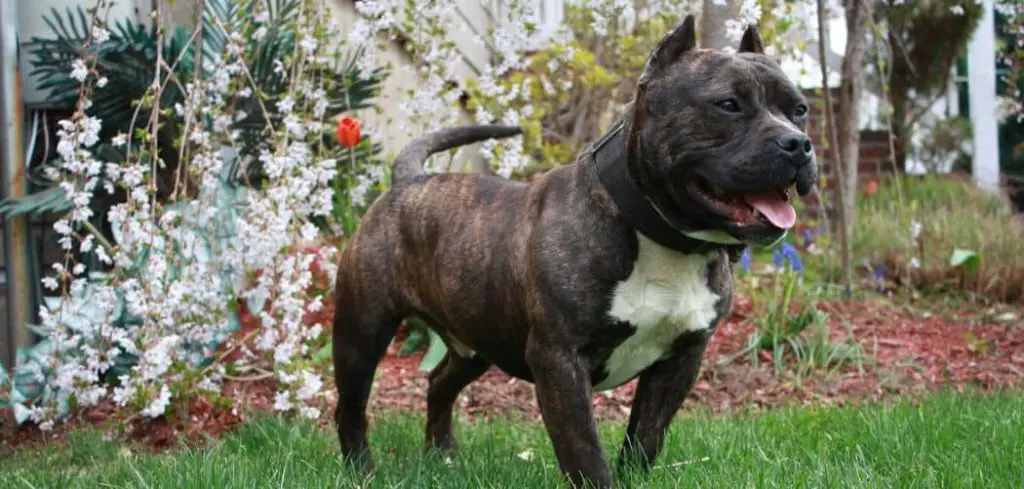When your dog is panting heavily and seems to be guzzling down water more than usual, it’s a red flag that something may be off.
These symptoms often go beyond simple thirst or heat — and they may point to more serious health concerns.
We outline the common causes of excessive dog panting and drinking lots of water, what you can do at home, and when to seek veterinary help.
Dog Panting Excessively and Drinking Lots of Water — Why It Happens
Dogs may pant and drink excessive amounts of water due to hormone imbalances, kidney or liver issues, infections, or reactions to medication.
While heat and exercise can cause temporary thirst and panting, persistent symptoms may suggest something more serious such as diabetes, Cushing’s disease, or internal pain.
Observing your dog’s habits and noting changes in behavior can help identify early signs of illness.

Common Causes of Dog Panting Excessively and Drinking Lots of Water
Cushing’s Disease
One of the most common causes of excessive panting and drinking in dogs is Cushing’s disease.
This condition causes the adrenal glands to produce too much cortisol, a hormone involved in stress and metabolism regulation.
Dogs may develop a pot-bellied appearance, hair thinning, and increased appetite in addition to panting and thirst.
If left untreated, it can lead to high blood pressure, diabetes, and infections.
Read more: Dog Excessive Panting and Itching (What it means)
Diabetes Mellitus
Diabetes leads to high blood sugar levels, which forces the body to flush out excess glucose through urine.
This results in excessive thirst and urination, while panting may stem from dehydration or secondary infections.
Dogs may also show signs of weight loss despite eating more, and their energy levels might decline.
Without treatment, complications like ketoacidosis can become life-threatening.
Read more: Dog Panting Excessively (Here’s why)
Kidney Disease
When the kidneys aren’t functioning properly, the body struggles to maintain fluid and electrolyte balance.
Dogs will often drink more to compensate, and panting can result from toxin buildup or anemia caused by kidney failure.
Chronic kidney disease develops slowly, so early signs like increased thirst and subtle restlessness shouldn’t be ignored.
You may also notice vomiting, bad breath, or a decrease in appetite.
Liver Disease
Liver dysfunction can also cause increased thirst and panting, particularly if toxins are accumulating in the body.
In some cases, panting is due to abdominal discomfort or nausea caused by liver enlargement or inflammation.
Other symptoms may include jaundice (yellowing of gums or eyes), lethargy, or behavioral changes.
Early diagnosis is important to slow disease progression.
Side Effects of Steroids
Medications like prednisone are commonly prescribed for inflammation, allergies, or autoimmune conditions.
One well-known side effect is increased thirst and urination — and panting is also common.
These effects can occur even with short-term use.
If your dog recently started a new medication, it’s worth discussing dosage or alternatives with your vet.
Urinary Tract Infections (UTIs)
While UTIs are more often associated with frequent urination, they can also cause increased drinking.
Discomfort, fever, or internal inflammation from an infection may make your dog pant more than usual.
Watch for straining to urinate, blood in the urine, or accidents in the house.
Infections left untreated can spread to the kidneys and become much more serious.
What to Do If Your Dog Is Panting Excessively and Drinking Lots of Water
Start by monitoring your dog’s water intake. Measure how much they’re drinking daily and note when the panting occurs.
Make sure they’re in a cool, stress-free environment with constant access to clean, fresh water.
Avoid heavy physical activity until the cause is known. Overexertion can worsen symptoms, especially if your dog has an underlying condition.
Check for additional symptoms like vomiting, appetite loss, or changes in bathroom habits. These details will help your vet assess the situation.
If your dog is on medication, review the side effects and ask your vet whether adjustments are needed.
When to Call or Visit Your Vet
Contact your vet if your dog:
Drinks far more than usual (over a gallon per day for medium to large dogs)
Pants excessively even when resting
Shows signs of vomiting, diarrhea, or weakness
Has appetite changes or unexplained weight loss
Has a known condition like diabetes or kidney disease that’s acting up
Persistent panting and excessive drinking aren’t normal and can point to chronic disease or acute infection.
The sooner you get a professional diagnosis, the better the outcome for your dog’s comfort and recovery.
Read more: Dog Panting Excessively and Restless (The top causes and next steps)
Key Takeaway
If your dog is panting excessively and drinking lots of water, don’t dismiss it as just thirst or hot weather.
It could be a sign of hormone imbalances, kidney trouble, diabetes, or even medication side effects.
Monitor the symptoms, provide supportive care, and consult your vet promptly.
With early intervention, you can manage the root cause and help your dog feel better quickly.
